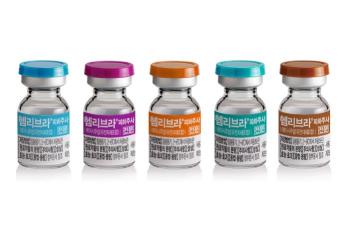COVID-19 Infected People at 62% Higher Risk of Cardiovascular Disease...Up to 10x when it's severe
Jun 09, 2025
|
'Chronic COVID-19 Syndrome (Long COVID)' is a chronic symptom that persists after infection with COVID-19. It mainly refers to cases that last more than 4 weeks after COVID-19 infection. It is evaluated as a disease that requires health caution because it often leaves various long-term sequelae. Among them, cardiovascular disease is a representative complication. Studies have reported that the risk of developing myocardial infarction or ischemic stroke increases within weeks of infection.
Most of the existing studies were targeted by a single country or a specific group, making it difficult to represent the general population. There has been a lack of evidence on how long the cardiovascular risk persists after infection and how it depends on vaccination status or virus mutations. To compensate for these limitations, Professor Yeon Dong-gun's research team comprehensively analyzed the long-term effects of cardiovascular disease after COVID-19 infection using national medical big data from Korea and Japan. This study is an achievement that has provided important implications for public health policy establishment beyond academic contributions.
The data used by the research team are national health care data, including about 7.96 million in Korea and 1.26 million in Japan. Using this, we analyzed the risk of cardiovascular disease after COVID-19 infection. As a result of the analysis, the risk of cardiovascular disease was about 62% higher in those infected with COVID-19 compared to those who were not infected. There were distinct differences in ischemic heart disease, heart failure, and cerebrovascular disease. Severe infections of severity or higher have increased the risk of cardiovascular disease by up to 10 times. However, if vaccinated against COVID-19, the risk was reduced by about 30%.
Increased cardiovascular risk following COVID-19 infection was consistently observed during the Delta and Omicron variants, including the early stages of the COVID-19 pandemic. These risks tended to persist up to 18 months after infection and then gradually ease over time. But despite this risk, the absolute incidence was low. In fact, the incidence of stroke among infected people was 0.24%, myocardial infarction was 0.05%, and major cardiovascular events were 0.15%. Researcher Hwang Seung-ha said "Monitoring and prevention of high-risk groups is necessary, but we should be wary of excessive public anxiety."," he said.
Professor Yeon Dong-gun "This study has demonstrated through large national data that the risk of cardiovascular disease may increase for a long time after COVID-19 infection."It will serve as a reminder of the importance of cardiovascular monitoring and prevention strategies for high-risk groups after infection."
|
This article was translated by Naver AI translator.















